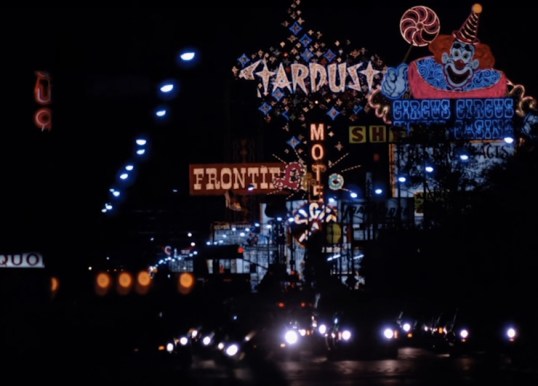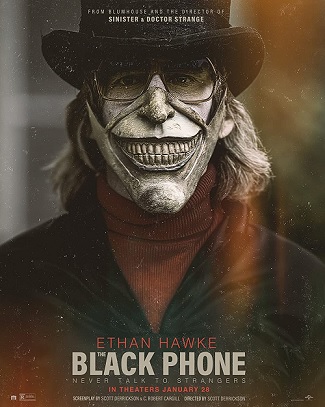The Las Vegas Film Critics Society has announced its picks for the best of 2025. The winners are in bold.
BEST PICTURE
Frankenstein
Marty Supreme
One Battle After Another
Sinners
Train Dreams
BEST ACTOR
Timothée Chalamet – Marty Supreme
Leonardo DiCaprio – One Battle After Another
Joel Edgerton – Train Dreams
Michael B. Jordan – Sinners
Jesse Plemons – Bugonia
BEST ACTRESS
Jessie Buckley – Hamnet
Rose Byrne – If I Had Legs I’d Kick You
Renate Reinsve – Sentimental Value
Amanda Seyfried – The Testament of Ann Lee
Emma Stone – Bugonia
BEST SUPPORTING ACTOR
Benicio del Toro – One Battle After Another
Jacob Elordi – Frankenstein
Delroy Lindo – Sinners
Sean Penn – One Battle After Another
Stellan Skarsgård – Sentimental Value
BEST SUPPORTING ACTRESS
Emily Blunt – The Smashing Machine
Elle Fanning – Sentimental Value
Ariana Grande – Wicked: For Good
Amy Madigan – Weapons
Teyana Taylor – One Battle After Another
BEST DIRECTOR
Guillermo del Toro – Frankenstein
Josh Safdie – Marty Supreme
Paul Thomas Anderson – One Battle After Another
Ryan Coogler – Sinners
Clint Bentley – Train Dreams
BEST ORIGINAL SCREENPLAY
Marty Supreme
Sentimental Value
Sinners
Sorry, Baby
Weapons
BEST ADAPTED SCREENPLAY
Bugonia
Frankenstein
No Other Choice
One Battle After Another
Train Dreams
BEST CINEMATOGRAPHY
F1: The Movie
Frankenstein
One Battle After Another
Sinners
Train Dreams
BEST FILM EDITING
F1: The Movie
Marty Supreme
One Battle After Another
Sinners
Train Dreams
BEST SCORE
F1: The Movie
Frankenstein
One Battle After Another
Sinners
Tron: Ares
BEST SONG
Clothed by the Sun – The Testament of Ann Lee
Drive – F1: The Movie
Golden – KPop Demon Hunters
I Lied to You – Sinners
Train Dreams – Train Dreams
BEST DOCUMENTARY
The Alabama Solution
Come See Me in the Good Light
Cover Up
John Candy: I Like Me
The Perfect Neighbor
BEST ANIMATED FILM
Arco
Demon Slayer: Kimetsu no Yaiba The Movie: Infinity Castle
In Your Dreams
KPop Demon Hunters
Zootopia 2
BEST INTERNATIONAL FILM
It Was Just an Accident
Left-Handed Girl
No Other Choice
Sentimental Value
The Secret Agent
BEST COSTUME DESIGN
Frankenstein
Hamnet
Kiss of the Spider Woman
Sinners
Wicked: For Good
BEST ART DIRECTION
Avatar: Fire and Ash
Frankenstein
Marty Supreme
Sinners
Wicked: For Good
BEST VISUAL EFFECTS
Avatar: Fire and Ash
F1: The Movie
Mission: Impossible – The Final Reckoning
Superman
The Fantastic Four: First Steps
BEST ACTION FILM
From the World of John Wick: Ballerina
Mission: Impossible – The Final Reckoning
Predator: Badlands
Superman
The Running Man
BEST COMEDY
Eternity
Friendship
The Ballad of Wallis Island
The Naked Gun
One of Them Days
BEST HORROR / SCI-FI
28 Years Later
Bring Her Back
Frankenstein
Sinners
The Long Walk
BEST FAMILY FILM
How to Train Your Dragon
KPop Demon Hunters
Lilo & Stitch
The Legend of Ochi
Zootopia 2
BEST ANIMAL PERFORMANCE
Bing, the Great Dane – The Friend
Hercules, the Dog – Marty Supreme
Indy – Good Boy
Olga, the Cat – Sorry, Baby
Richard and Baba – The Penguin Lessons
BEST ENSEMBLE
Jay Kelly
Marty Supreme
One Battle After Another
Sentimental Value
Sinners
BREAKOUT FILMMAKER
Clint Bentley – Train Dreams
Drew Hancock – Companion
Emilie Blichfeldt – The Ugly Stepsister
Eva Victor – Sorry, Baby
James Sweeney – Twinless
BEST STUNTS
F1: The Movie
From the World of John Wick: Ballerina
Mission: Impossible – The Final Reckoning
Predator: Badlands
The Running Man
YOUTH MALE PERFORMANCE (UNDER 21)
Christian Convery – Frankenstein / The Monkey
Jacobi Jupe – Hamnet
John Wren Phillips – Bring Her Back
Mason Thames – How to Train Your Dragon
Miles Caton – Sinners
FEMALE YOUTH PERFORMANCE (UNDER 21)
Helena Zengel – The Legend of Ochi
Maia Kealoha – Lilo & Stitch
Nina Ye – Left-Handed Girl
Shannon Mahina Gorman – Rental Family
Sora Wong – Bring Her Back
WILLIAM HOLDEN LIFETIME ACHIEVEMENT AWARD
Kathryn Bigelow
Barbara Broccoli
Kathleen Kennedy
Delroy Lindo
Sigourney Weaver





